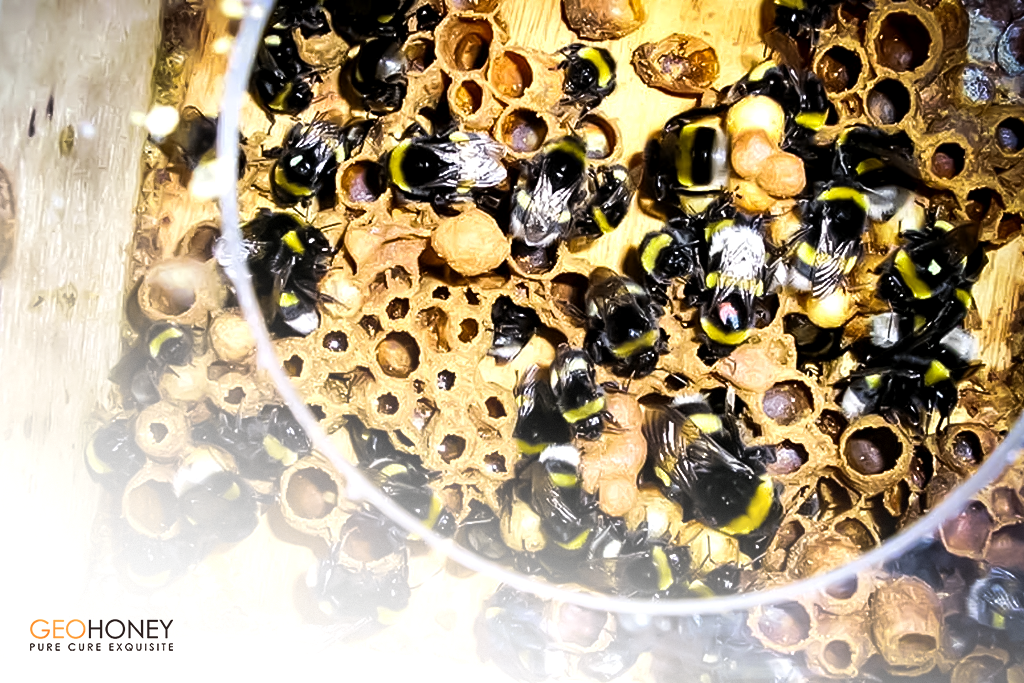- Tokyo: 13:31
- Singapore: 12:31
- Dubai: 08:31
- London: 04:31
- New York: 23:31
Do Honey Bees Pollinate Better When Fed With Caffeine?

We as humans most commonly use caffeine every day. Some of us use it for concentration, migraine, headaches, memory, obesity, athletic performance and for many other reasons. The association between humans and caffeine is well known. But did you ever think that caffeine is also helpful for honey bees? Yes, you heard that right!
A few studies have revealed that a small amount of caffeine is good for bumblebees. The caffeine in coffee could give us an energetic kick; however, many plants depend on its bitter taste to deter plant-eating creatures. Others, in any case, appear to trap themselves with caffeine, doping their nectar with low concentrations of the stuff. So why add a bitter deterrent to a fluid intended to allure and draw in pollinators?
To find out more, a team of researchers fed the bumblebees a mix of sugar, floral aromas, and caffeine before they went out in search of nectar. It was found that when the bees are fed with caffeine, they not only fly in loops but seem to be more efficient and motivated.
Picking the best flower source for food isn't as simple for the honey bees as it appears to us. In actuality, it is tough for the bees to forage in the environment since they don't have a phenomenally sharp sight at long reach.
Researchers realize that caffeine, which is naturally found in plants like coffee and citrus, assumes a part in changing over honey bees into reliable customers of caffeinated blossoms. But previous experiments where honey bees showed an inclination for the smell of blossoms with caffeinated nectar have generally been intended to give honey bees caffeine at the actual bloom. With that arrangement, it's challenging to pinpoint the job caffeine plays: do caffeinated bees have better memories, or do they crave the caffeine?
To answer this question, the researchers decided to give the honey bees caffeine at their hives. At the same time, they figured out how to relate a particular smell - a synthetic scent mix that copies the aroma of a strawberry bloom - with a delicious sugar arrangement. Subsequently, they would be rewarded with sweet, decaffeinated nectar when they were sent out to scrounge for food and pick the strawberry-scented blossoms.
To research more on the bees, the group of bumblebees was divided into two. One group was given a caffeinated sugar solution with the strawberry odor, and the other group was given the strawberry odor and standard sugar solution. Both of these groups were then sent out to forage where they needed to pick between two kinds of robotic flowers: either blossoms with the strawberry scent they were at that point presented to or distractor flowers with other smells.
Amazingly, 70.4% of the bees who were fed with caffeinated sugar solution visited the strawberry flowers first -- much higher than chance. 60% of the bees who were given a simple sugar solution with strawberry odor initially chose the strawberry flowers. Thus, the study proved that caffeine had an observable effect on the honey bees' capacity to recognize a strawberry flower from its smell and to recollect that it has its desired nectar.
In any case, this inclination didn't keep going long. The caffeinated honey bees moved quickly, got over their early inclination for strawberry flowers, and began visiting the other type of flower almost equally, too. It was also noticed that caffeine had a subtle effect on the handling speed of the bees as well.
According to Mr. Basem Barry, founder & CEO of Geohoney, such studies play a crucial role in studying bees and significantly affect agriculture. The study also showed fascinating commonalities between bees & humans! If caffeine is helpful in teaching bees to prefer the crop, growers will get more value for their money spent on hives, which will be a winning situation for everybody.




this is a first time, I have read about bees and caffeine, nice topic.